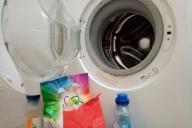We often don’t think about the fact that a dog’s diet affects not only its physical health, but also its emotional state.
Proper nutrition is the key to a good mood, activity and cheerfulness of your pet.
An unbalanced diet, on the contrary, can lead to apathy, aggression and other behavioral problems.

The role of proteins and carbohydrates
Proteins are the main building material for a dog's body. They are necessary for muscle growth, development and maintenance.
Lack of protein in the diet can lead to decreased activity, worsening mood and even depression. Carbohydrates are a source of energy for a dog.
They provide the body with glucose, which is necessary for brain and muscle function. However, excess carbohydrates can lead to obesity, apathy, and decreased activity.
Fats and their impact on behavior
Fats are an important component of a dog's diet, providing the body with energy, fat-soluble vitamins and fatty acids.
Omega-3 and omega-6 fatty acids play an important role in the functioning of the brain and nervous system, influencing mood, learning ability and cognitive function.
A deficiency of these acids can lead to increased anxiety, aggression and depression.
Vitamins and minerals for emotional balance
Vitamins and minerals are involved in all vital processes of the body, including the functioning of the nervous system and brain.
Deficiencies in certain vitamins and minerals can negatively impact a dog's mood and behavior.
For example, a deficiency of vitamin B1 can lead to increased irritability and aggression, while a lack of magnesium can lead to anxiety and restlessness.
How to tell if your dog's diet is unbalanced
- Change in behavior: the dog becomes lethargic, apathetic, or, conversely, aggressive and irritable.
- Problems with coat and skin: the coat becomes dull and brittle, dandruff appears, the skin itches and flakes.
- Digestive disorders: the dog suffers from constipation, diarrhea, flatulence.
- Decreased immunity: the dog often gets sick and does not tolerate vaccinations well.
- Weight problems: The dog gains or loses weight quickly.
Diet Tips
- Choose high-quality foods with a high protein content and a balanced composition.
- Include fresh vegetables and fruits in your diet, which are a source of vitamins and minerals.
- Provide your dog with plenty of clean drinking water.
- Control portion sizes and do not overfeed your dog.
- Visit your veterinarian regularly to monitor your pet's health.
Previously we talked about cat breeds that love solitude.








